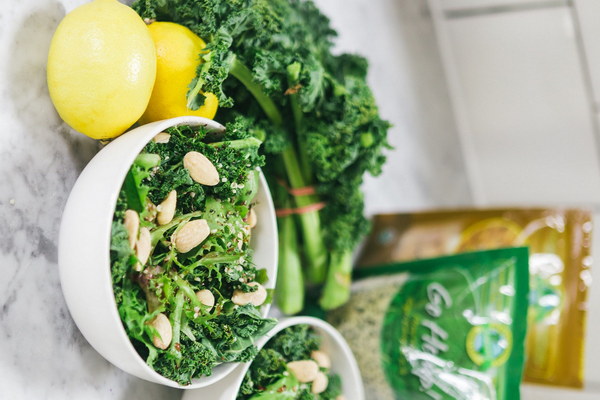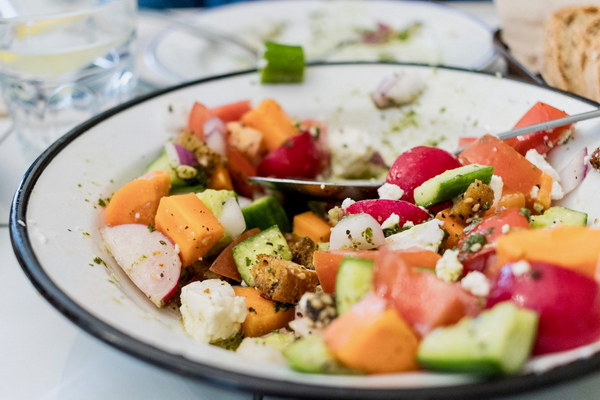Nourishing Heart Health A Breastfeeding Diet Plan for Myocardial Ischemia
Nourishing Heart Health: A Breastfeeding Diet Plan for Myocardial Ischemia
Breastfeeding is a critical period for both the mother and the baby, and it's essential for the mother to maintain a balanced diet to support her own health and provide optimal nutrition to her infant. For mothers with myocardial ischemia, a condition where the heart muscle doesn't receive enough oxygen, a carefully curated dietary plan can be a lifeline. This article outlines a comprehensive breastfeeding diet plan designed to address the nutritional needs of mothers with myocardial ischemia, focusing on heart-healthy foods and recipes.
Understanding Myocardial Ischemia in Breastfeeding Mothers
Myocardial ischemia, often referred to as coronary artery disease, occurs when the blood flow to the heart muscle is reduced, leading to chest pain, shortness of breath, and fatigue. For breastfeeding mothers, this condition can be particularly challenging due to the increased energy demands and the importance of maintaining milk production.
Key Nutrients for Breastfeeding Mothers with Myocardial Ischemia
To combat myocardial ischemia, it's crucial to incorporate certain nutrients into the diet:
1. Omega-3 Fatty Acids: Found in fish, flaxseeds, and walnuts, omega-3s can help reduce inflammation and improve heart health.
2. Magnesium: This mineral is essential for heart function and can be found in leafy greens, nuts, and legumes.
3. Antioxidants: Foods rich in antioxidants, such as berries, dark chocolate, and artichokes, can protect the heart from oxidative stress.
4. Fiber: A diet high in fiber can help lower cholesterol levels and improve heart health; whole grains, fruits, and vegetables are great sources.
5. Potassium: Essential for maintaining normal heart rhythm, potassium can be found in bananas, oranges, and sweet potatoes.
The Breastfeeding Diet Plan for Myocardial Ischemia
Day 1:

- Breakfast: Omega-3-rich smoothie with spinach, banana, flaxseeds, and almond milk.
- Lunch: Grilled salmon salad with a variety of colorful vegetables, olive oil, and lemon juice.
- Snack: A handful of walnuts and a banana.
- Dinner: Lentil and vegetable soup with a side of whole grain bread.
Day 2:
- Breakfast: Greek yogurt with berries, a drizzle of honey, and a sprinkle of flaxseeds.
- Lunch: Quinoa salad with cherry tomatoes, cucumbers, feta cheese, and a lemon-olive oil dressing.
- Snack: A cup of mixed nuts.
- Dinner: Baked chicken breast with a side of steamed broccoli and brown rice.
Day 3:
- Breakfast: Spinach and feta cheese omelette with whole grain toast.
- Lunch: Turkey and avocado wrap with whole wheat tortilla and a side of mixed greens.
- Snack: A handful of almonds and a piece of dark chocolate.
- Dinner: Grilled vegetable kebabs with a yogurt-based tzatziki sauce and a side of couscous.
Day 4:
- Breakfast: Whole grain cereal with almond milk, topped with fresh berries and a sprinkle of chia seeds.
- Lunch: Tuna salad sandwich on whole grain bread with lettuce, tomato, and mustard.
- Snack: A banana and a glass of orange juice.
- Dinner: Baked sweet potatoes stuffed with black beans, corn, and cheese.
Day 5:
- Breakfast: Scrambled eggs with spinach, mushrooms, and onions, served with a slice of whole grain toast.
- Lunch: Chicken stir-fry with bell peppers, carrots, and broccoli, served over brown rice.
- Snack: A cup of mixed berries and a handful of cashews.
- Dinner: Baked salmon with a side of roasted asparagus and quinoa.
Tips for Success
- Stay hydrated throughout the day by drinking plenty of water.
- Limit the intake of processed foods, high in saturated fats, and refined sugars.
- Incorporate physical activity into your daily routine, as it can improve cardiovascular health.
- Consult with a healthcare professional or a registered dietitian to tailor the diet plan to your specific needs.
By following this breastfeeding diet plan, mothers with myocardial ischemia can nourish their hearts while providing their babies with the essential nutrients they need for healthy development. Remember, a balanced diet is the cornerstone of good health, and it's even more important during the delicate period of breastfeeding.









